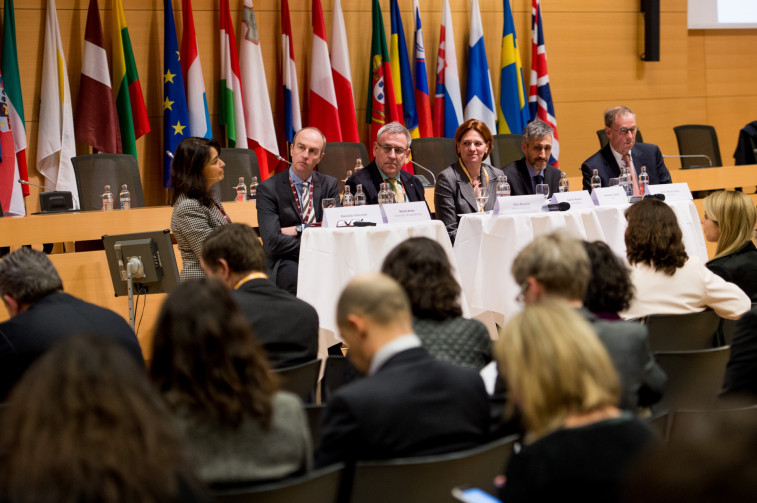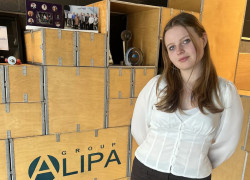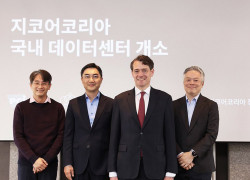PwC - Pinning Luxembourg on the world map of talent
Competitiveness, talent movement and economic prosperity were at the heart of the Journée de l’Economie 2016
Financial sector undergoing profound change, diversification of the economy towards digital transformation, human capital and skills, vocational and university training, breeding grounds for global talent, Luxembourg visibility abroad... Many strategic issues were on the agenda of the Journée de l’Economie on 25 February 2016, organised jointly by the Ministry of Economy, the Chamber of Commerce of Luxembourg, the FEDIL and PwC Luxembourg for 10 years.
Human capital, a raw resource in Luxembourg
Luxembourg is facing many long-term challenges. Diversifying beyond the financial sector, which still accounts for a significant part of the economy, has rapidly become the core discussion. Carlo Thelen (Director General of the Chamber of Commerce of the Grand Duchy) stressed in his opening address the importance of a large pool of talents for an open economy like in Luxembourg, an idea further developed by the Deputy Prime Minister and Economy Minister Etienne Schneider.Given this strategic context, Luxembourg has to secure a pool of best talents to gear up for coming challenges. Paul Evans, the Scientific Director of INSEAD, the business school that has been publishing for three years the Global Competitiveness and Talents Index (GCTI), insisted on the definition of talent. In his view, talent doesn’t necessarily mean a university degree, as we may often think, but rather specific skills in a particular field.
He also made a case for more vocational training, strongly emphasizing the excessive value given to traditional university education. Pushing too many young people into theoretical general training doesn’t necessarily match the needs of the labour market, according to the specialist.
While Luxembourg ranks 3 in the Global Competitiveness and Talents Index, Jonathan Chaloff (OECD) has presented the paths the country will have to follow not only to attract talent, but also to keep it within its borders. Luxembourg has yet to progress in terms of facilitating the entry of foreign workers in key areas, such as digital transformation. Authorities should also revise the administrative procedures for people occupying a management position and adapt the arrangements in place for non-European students following a university programme in the country, to give them the opportunity to find a job and settle down.
These measures would make Luxembourg employers consider foreigners as an “active recruitment target” (in many countries, companies recruit rather by accident). Knowing that their family is properly welcome, or that their spouses get help in their job-hunting, will sharply increase the chance to see foreigners settle in Luxembourg on the long term.
Prof. Dr. Rainer Klump, Rector of the University of Luxembourg, explained the importance of an international orientation for the University, which now attracts many students thanks to its multilingual studies offer. However, talent development doesn’t begin in university, but as soon as possible. Stéphanie Damgé from Jonk Entrepreneuren (recipient of the Journée de l’Economie donation of EUR 16,000, in 2015) was quite eloquent in this sense, highlighting their practical entrepreneurship programmes targeting elementary and secondary school students.
In the second part of the day, three workshops have enabled participants to exchange freely on topics deeply linked to the general theme of the Journée de l’Economie:
- Is Luxembourg ready for talents? Michel Roumieux (PwC Luxembourg) and Valerie Massin (Arcelor-Mittal);
- Developing initiatives towards economic migration in Luxembourg, with Michel Beine (University of Luxembourg) and Bénédicte Burioni (PwC Luxembourg);
- Building talents for digital transformation moderated by Christian Scharff (PwC Luxembourg) and Nico Binsfeld (House of Training).
The war for talent in the digital age
750,000 digital positions will be available in Europe by 2020, 59% of companies in Luxembourg have trouble recruiting skills in digital and 77% of companies believe they don’t have the right skills internally to address their digital transformation. These figures revealed by Christian Scharff (PwC Luxembourg) during the workshop he hosted with Nico Binsfeld (House of Training) illustrate the need for each company to create a recruitment strategy for the digital era, and raise awareness of business leaders to the opportunities offered by digital technologies.
A view also shared, later in the day, by Michel Beine (University of Luxembourg) and Nico Binsfeld (House of Training) who insisted on the importance of a better cooperation between public and private actors in the development of a range of effective and rapid degree programmes to alleviate the need for digital jobs in Luxembourg.
The example of the WebForce3 School, producing operational Web developers/integrators through an intensive training of 490 hours in three and a half months, is a success. This initiative was possible through a partnership between the National Employment Administration (ADEM) and NumericALL (represented by its CEO, Yves Lepage), which manages the WebForce3 School in Luxembourg. Thanks to WebForce3, NumericALL consolidates an efficient pedagogy that has been developing operational skills for two years, and combines it with ADEM’s expertise to identify enthusiast and motivated candidates motivated while working closely with companies looking for this kind of talents. This is the new generation of training (flexible, quick, and results-oriented), perfectly adapted for a quick insertion on the labor market.
Pinning Luxembourg on the map
Luxembourg already attracts talent from outside its borders. Ranked 3 in the Global Competitiveness and Talents Index published by INSEAD, the country has greatly increased its appeal compared to six years ago, in 2010, when it had the 16th position. While this third position is a dream for its neighbours, Paul Evans noted that considering Luxembourg’s GDP, its competitiveness should be significantly higher.
What is then the main challenge that Luxembourg will face in the race to attract and retain talent in the future? Provocatively, Paul Evans launched: "In the competition among cities, you are not on the map", indicating thus that the visibility the city of Luxembourg remains far behind other international cities like London, Paris, Copenhagen, Dubai or Singapore. A key point that John Parkhouse, CEO of PwC Luxembourg, clearly summed up by stressing that if the country has managed for so long to accommodate businesses based on its attractive regulatory framework, it is now time to say how great it is to work and live here.
Sasha Baillie (Chair of the “Nation Branding” inter-ministerial Committee) revealed the government actions to increase the visibility of Luxembourg. Their two-step approach aims at first identifying the Luxembourg brand values and then translate them into concrete initiatives. The three fundamental markers for Luxembourg are its openness, reliability and dynamism. The challenge is now to put in place actions that will allow everyone – public and private actors, individuals or companies - to take advantage of these values in their everyday lives. Sasha Baillie gave some concrete examples, such as the training of public officials who face citizens (residents or foreigners), a pilot project within the Ministry of Tourism, as well as the training of employees of the private sector who meet foreign travelers, as is the case for the Luxembourg Airport.
Paul Evans, again, emphasized the "specialisation" strategy of the Government and highlighted the development of the non-financial sector through the creation of economic clusters that bring together businesses, the research and development projects of the University of Luxembourg and other centers (such as STL or the LIH), as well as global talent in specific areas. Paul Evans makes again the case for the training of young Luxembourgers abroad, especially in Asia, which is now the centre of attention in terms of business. He showed the correlation between exposure abroad and capacity for innovation and adaptability to complex business situations, citing famous scientific studies.
Keep an eye on structural challenges
The final panel discussion, moderated by the journalist Daniela Vincenti (Editor-in-chief, EurActiv), highlighted a number of structural challenges to overcome:
- The gap between the public sector (dominated by Luxembourgish citizens) and the private sector (predominantly non-Luxembourgish citizens - residents or commuters) could lead, according to Jonathan Chaloff, to a "Dubaisation" of Luxembourg.
- The lack of effectiveness of the education system (including primary and secondary) and specifically the relationship between its costs and its ability to adapt to the market needs.
- The slow development in infrastructures, particularly with an international influence (the Philharmonie Luxembourg or the Rockhall are positive examples to follow).
Among the additional challenges: the “Schengxit” or the potential implosion of the Schengen space in Europe, following the migratory crisis, would be devastating for Luxembourg, according to Carlo Thelen. This is coupled with the issue of acceptance of an increasingly strong and internationally immigration by the Luxembourg population. As the 2015 referendum has clearly shown, integration efforts should be a priority to avoid serious tensions. The simple revision of its immigration policy will not be enough. Luxembourg must also scrutinise its education system and labour regulation to create an environment that encourages talent development.
The Government is fully aware of these challenges, as shown by Etienne Schneider’s closing speech and the courses of action he presented.
The Journée de l’Economie has once more fulfilled its catalyst of ideas and exchanges role and we’re looking forward to its 2017 edition.
The Journée de l’Economie supports entrepreneurship. The 2016 registration fees’ revenue will go to nyuko a.s.b.l., an organisation that accompanies start-ups and the creation of innovative companies in Luxembourg (www.nyuko.lu).
Communiqués liés
Réseau ETRE est le nouveau lauréat du Degroof Petercam Fou...
Réseau ETRE remporte la sixième édition du Degroof Petercam Foundation Award....
Le Groupe ALIPA accueille une étudiante dans le cadre du Jo...
ALIPA Group, spécialiste du levage et de l’emballage industriel, a accueilli ...
Quintet lance le premier d’une série de nouveaux fonds e...
La banque privée européenne lance un fonds d’actions américaines sous gesti...
Gcore opens the first H100-based data center in Korea - Part...
Gcore the global edge AI, cloud, network, and security solutions provider, will ...
ALD Automotive Luxembourg devient Ayvens
ALD Automotive / Leaseplan dévoile aujourd'hui Ayvens, sa nouvelle marque de mo...
Eurasian Resources Group to Donate 500 Million Tenge to Floo...
Eurasian Resources Group (ERG), a leading diversified natural resources group he...
Il n'y a aucun résultat pour votre recherche







